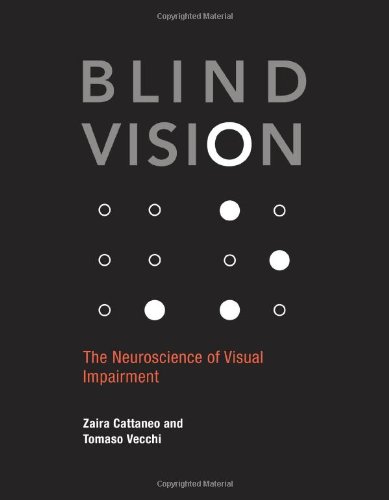

Most ebook files are in PDF format, so you can easily read them using various software such as Foxit Reader or directly on the Google Chrome browser.
Some ebook files are released by publishers in other formats such as .awz, .mobi, .epub, .fb2, etc. You may need to install specific software to read these formats on mobile/PC, such as Calibre.
Please read the tutorial at this link. https://ebooknice.com/page/post?id=faq
We offer FREE conversion to the popular formats you request; however, this may take some time. Therefore, right after payment, please email us, and we will try to provide the service as quickly as possible.
For some exceptional file formats or broken links (if any), please refrain from opening any disputes. Instead, email us first, and we will try to assist within a maximum of 6 hours.
EbookNice Team

Status:
Available0.0
0 reviews
ISBN 10: 026201503X
ISBN 13: 9780262015035
Author: Zaira Cattaneo, Tomaso Vecchi
An investigation of the effects of blindness and other types of visual deficit on cognitive abilities.
Can a blind person see? The very idea seems paradoxical. And yet, if we conceive of "seeing" as the ability to generate internal mental representations that may contain visual details, the idea of blind vision becomes a concept subject to investigation. In this book, Zaira Cattaneo and Tomaso Vecchi examine the effects of blindness and other types of visual deficit on the development and functioning of the human cognitive system. Drawing on behavioral and neurophysiological data, Cattaneo and Vecchi analyze research on mental imagery, spatial cognition, and compensatory mechanisms at the sensorial, cognitive, and cortical levels in individuals with complete or profound visual impairment. They find that our brain does not need our eyes to "see."
Cattaneo and Vecchi address critical questions of broad importance: the relationship of visual perception to imagery and working memory and the extent to which mental imagery depends on normal vision; the functional and neural relationships between vision and the other senses; the specific aspects of the visual experience that are crucial to cognitive development or specific cognitive mechanisms; and the extraordinary plasticity of the brain—as illustrated by the way that, in the blind, the visual cortex may be reorganized to support other perceptual or cognitive funtions. In the absence of vision, the other senses work as functional substitutes and are often improved. With Blind Vision, Cattaneo and Vecchi take on the "tyranny of the visual," pointing to the importance of the other senses in cognition.
Blindness and Sensory Compensation
The Relationship Between Visual Perception, Imagery, and Cognitive Functions
Imagery and Working Memory Processes in the Blind
Spatial Cognition in the Blind
Low Vision
The Importance of Blindness Onset
Cortical Plasticity and Blindness
blindsight neuroscience
eye and brain the psychology of seeing
7 blind mouse
7 blind mice
7 blind mice book
neuroscience 6th edition by dale purves
Tags: Zaira Cattaneo, Tomaso Vecchi, Neuroscience, Visual